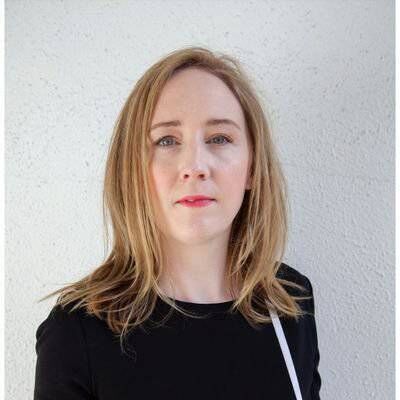John Hearne: Are you saving enough for retirement?

Inflation in Ireland may be back down below 2%, but prices are still rising. We’re still in the depths of a cost-of-living crisis.
Providing for retirement is one thing. Providing enough for retirement is quite another. A Competition and Consumer Protection Commission (CCPC) survey of 757 people found that a lot of us aren’t doing enough to ensure we’ll manage in retirement.
One in 10 people between the ages of 45 and 64 don’t have a pension, while pension ownership among the 45-54 age group stands at 76%. This is a sharp decline since 2022, when 85% of this group had a pension.
“It’s concerning that such a significant cohort of people could enter retirement without a pension,” says CCPC Director of Communications Grainne Griffin. “It’s never too late to start a pension; it’s a very effective form of saving, and even a few years can make a difference.”
Part of the problem is affordability. A quarter of those without a pension say that they simply can’t afford to start one. Inflation in Ireland may be back down below 2%, but prices are still rising. We’re still in the depths of a cost-of-living crisis.
The CCPC survey also showed that there was broad support in the market for a compulsory pension scheme.
Auto-enrolment, where a pension is automatically set up and deducted from wages or salary once an individual starts paid employment, is due to be introduced in Ireland next year. There is strong support for auto-enrolment across age groups, with 79% of under 25s — the group least likely to already have a pension — saying they would be happy to pay into a compulsory pension scheme.

“We were happy to see that a majority of people over 18 have a pension,” said Grainne Griffin, “and it is encouraging to see strong levels of support for auto-enrolment across demographics. This shows that people recognise the need to plan for retirement.”
Under auto-enrolment, employees will have access to a workplace pension savings scheme which is co-funded by their employer and the State. In order to encourage workers to participate, those people who choose to remain in the system will have their pension savings matched on a one-for-one basis by the employer.
The State will also provide a top-up of €1 for every €3 saved by the worker. So you put €3 in, and you end up with €7.
The other issue with providing for retirement is that we don’t really have a firm handle on what exactly those costs will be. 45% of people in Ireland expect their 60s to be the years they will need most money, while almost four in 10 (38%) expect to need most money in their 70s, according to a new survey by Royal London Ireland.
Of the 1,000 adults surveyed nationwide, 17% believe they’ll need the most money in their 80s and 90s. However, the views expressed changed depending on how close the respondents were to retirement. For example, while just 8% of the 35- to 44-year-olds surveyed expect their 80s to be the most expensive decade of retirement, 19% of those over 55 felt this way.
Mark Reilly is Pension Proposition Lead with Royal London Ireland. “On the one hand, how much we’ll need for our retirement years could be anyone’s guess,” he says, “as none of us know for sure what lies ahead. However, by looking at our current financial situation, and what provisions, if any, we have put in place, and by considering the common expenditure associated with later years in life, then we could all make an educated guess as to what we need to budget for in retirement.”
Weekly nursing home fees range from €1,000 to almost €3,000, meaning that in some cases, the annual cost of a stay in a nursing home could be as much as €150,000 plus.
Another recent study by Royal London Ireland found that almost three in 10 homeowners expect to be still paying off their mortgage in their retirement years, while 8% expect to be continuing to do so into their 70s. As the average mortgage drawn down by first-time buyers is now €282,084, repaying a mortgage into retirement could be a substantial financial strain.
Then you’ve got healthcare costs. These range from h ealth insurance premiums, GP visits and regular prescriptions to more expensive treatments like mastectomy, spinal fusion surgery, heart surgery, prostatectomy and treatment for depression.
And of course there are still day-to-day living expenses. I f you live in a typical three-bedroomed house, the average annual electricity bill on a standard tariff is €1,763 while the average annual gas bill on a standard tariff is €1,466.
Discretionary expenditure will of course vary vastly from person to person but could include hobbies, embarking on further education and travel. Nearly half of pre-retirees intend to travel in their later years, according to the Retirement Planning Council of Ireland.
Just because you’re retired doesn’t mean you don’t have any dependents. The average age of mothers giving birth in Ireland is at its highest point since records began, and the number of Irish women giving birth at the age of 40 and over is about a third higher than it was in 2011. This means that many people in retirement could still be supporting their children. The cost to a parent of supporting a child to buy their first home could prove substantial.
According to the Banking and Payments Federation, 42% of first-time buyers (FTB) received a parental gift towards their house deposit. Third-level education fees could also need to be covered; it currently costs €56,376 to send one child to college for four years.
Mr Reilly added: “People often underestimate the amount of money they will need, and the amount of time they will spend in retirement. But when you look at this list, you see that life very much goes on in retirement and with it so do the costs. Admittedly, there is State support available to people — primarily the State pension and other supports like the fuel allowance, the GP visit card and the Nursing Homes Support Scheme.”
“But retirement is also the time when you have no other earned income coming in. So if the State supports are not enough to pay your costs, then without a pension you’ll have no other way of generating these funds.”
Reviewing your pension can save you money, says Grainne Griffen. “Especially if you have an older pension, you may be paying much higher charges than needed, so it’s a good idea to check your pension now and question any charges.”
She added: “Ideally we would all review our pensions every year, but this becomes more and more important the closer we get to retirement. If you’re retiring in the next 10 years, talk to a financial advisor now to check your pension adequacy.”













